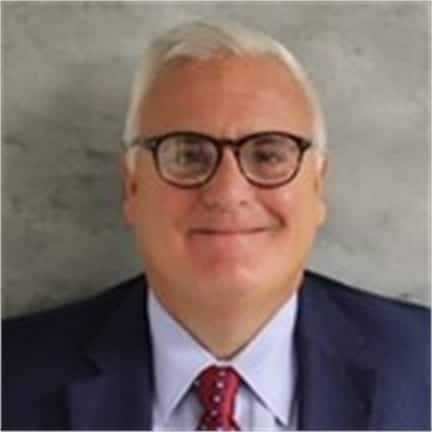A truly engaged group of 70 second-year and 10 first-year DMU D.O. students recently volunteered to participate in a four-session medical leadership program introduced to DMU this year.
The Professionalism and Leadership in the Medical Setting program, or PaLMS, was designed nearly 10 years ago by Steven J. Halm, D.O., FAAP, FACP, dean of the College of Osteopathic Medicine (COM) at DMU. This year’s program included COM Associate Deans Jen Beaty, M.D., FACS, FASCRS, and P.J. Schenarts, M.D., FACS, MAMSE, who provided clinical examples of their experiences as physician leaders.

The program is designed to share standard leadership principles that have been widely accepted by the military and business worlds for decades and adapt these principles to the unique features of the medical and health care fields. Dr. Halm has taught the program at two other medical schools and at dozens of residency programs; there are currently more than 1,000 graduates of the PaLMS program.
“Standard four-year medical school education touches on leadership and professionalism but does not delve into important concepts of leadership in a significantly formal manner,” says Dr. Halm. “Many medical students are ill-equipped for the transition to clinical medicine in their third and fourth years and in their first year of residency. The PaLMS program for pre-clinical medical students is very intentional in addressing this before the leadership skills are needed, so that students have time to develop their understanding over time.”

Most leadership development for medical students and residencies typically occurs informally in advanced years of residency in accordance with the advanced responsibilities. PaLMS provides an engaging process to explore each student’s untapped potential to be a great leader early in his or her medical journey.
Dean Halm wants to create a launching pad for development of “medical practitioner leaders” who are truly essential to transforming the medical profession. “All physicians should learn basic leadership theories early in their professional development,” he says. “The best physicians are those that develop and lead great health care teams as well as lead their patients.”

The program allows students to gain skills in time management, planning and organizing, and communication. Other important areas the program covers include stress management, personal resiliency and understanding one’s own individual natural leadership style and how to “’flex’ that natural style when necessary,” Dr. Halm says.
The program is comprised of interactive discussion sessions, small-group tasks, case studies and self-assessments.
Prior participants have said that their PaLMS experience was extremely beneficial for their role as future physicians.
“It was an excellent course, and I am excited for future DMU students to have this experience,” says Micah Thatcher, D.O.’24, president of the College of Osteopathic Medicine Student Government Association. He was instrumental in arranging logistics for the PaLMS program and sparking interest in the program among his classmates. “One of the biggest impacts was learning details of specific medical leadership situations that Dr. Halm, Dr. Beaty and Dr. Schenarts were willing to share directly from the lessons they learned throughout their successful careers.”

